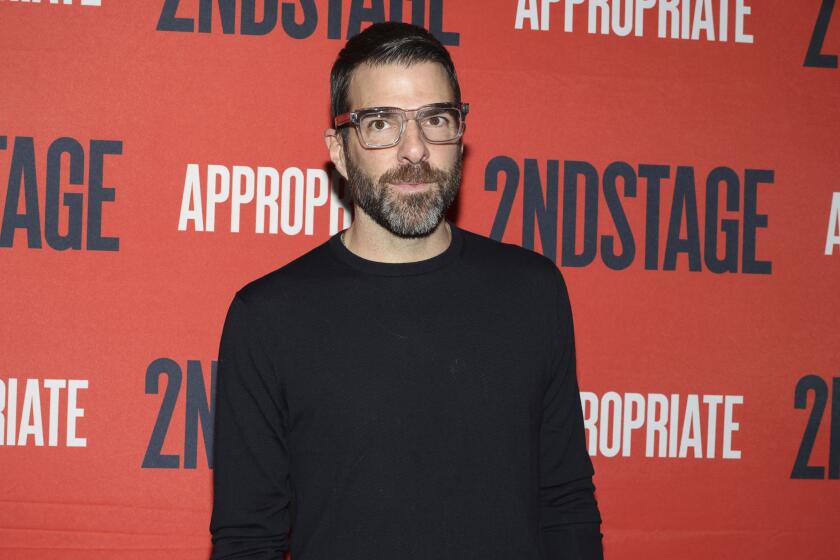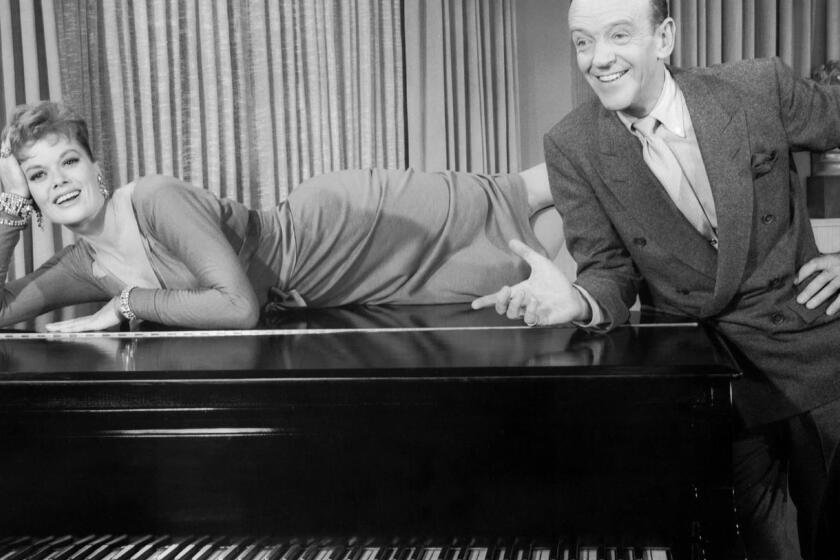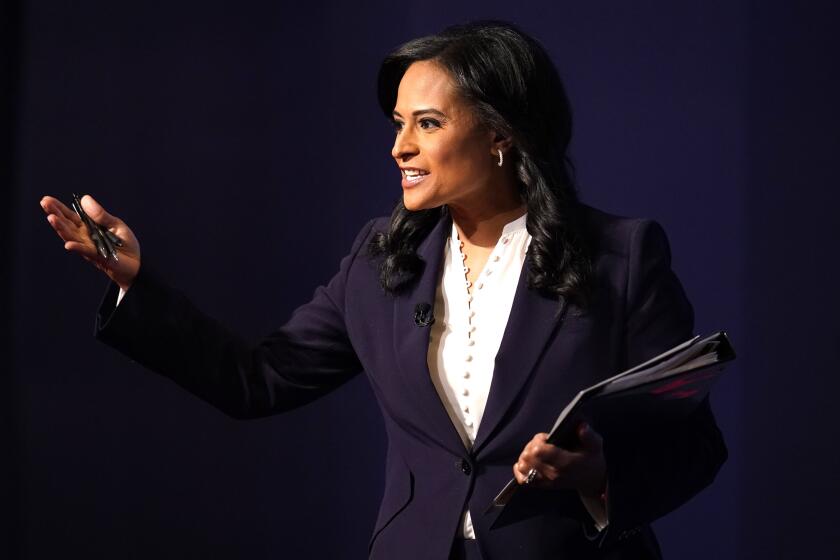Company Town : THE PLAYERS / People Who Shape Hollywood : An Ex-Agent Finds Life on the Other Side
If Michael S. Ovitz were considering leaving the agency business to run a studio (which he insists he’s not), he might ask one of his former proteges, Mike Marcus, what it’s like on the other side .
Last fall, the then-48-year-old high-powered agent left Creative Artists Agency, where he represented such clients as Tom Cruise, Robin Williams and Sydney Pollack, to become president of MGM.
He and former Warner Bros. senior executive John Calley, Marcus’ counterpart at MGM’s sister unit United Artists, were hired by MGM Chairman Frank Mancuso to help revive the historic studio that had been left virtually moribund after a series of ownership changes. The trio’s goal is to rebuild the operations so that MGM’s owner, French bank Credit Lyonnais, will have a major asset to sell when it is forced to do so by May, 1997, under U.S. banking laws.
Marcus went instantly from being a seller to a buyer--from someone sitting on one side of the table seeking the richest deal possible from a studio executive to becoming exasperated when an agent demands ridiculously high fees for a client.
“All my old deals are coming back to haunt me,” Marcus said as he discussed life as a studio chief over pasta at Brentwood’s trendy Italian cafe Toscana recently.
“The most frustrating thing is sitting there in the midst of a negotiation and having our business affairs and corporate people look at me and say, ‘The thing you’re so frustrated about was based on a deal you made years ago.’ ”
After spending 25 years agenting, Marcus said, “frankly, I thought I was going to spend the rest of my career at CAA.”
When asked who else he represented at the agency, Marcus tellingly pulled a card from his inside breast pocket.
“Believe it or not, don’t ask me why, I still have my client list,” he said, showing the neatly typed list of more than a dozen names, including directors Michael Apted, John Landis and Jon Avnet.
So why would someone making “very good money” and enjoying his career take a job where failure can be all too easy with a string of unsuccessful movies?
“I guess when I sat down and really started analyzing it, I decided to take a shot. I thought, ‘What the hell,’ ” said the normally cautious Marcus.
Marcus recalls that Mancuso, who had successfully run Paramount Pictures for many years, had advised him, “If you’re going to take a shot in life that is this intensive, now is the time to do it, because at a point later in your life you’re going to be too set in your ways and you’re not going to want to change your life.”
The eldest of three brothers raised in Pittsburgh, Marcus started his career shortly after moving here in 1968, in the mail room of Creative Management Associates. He joined CAA in 1981.
It was his deep respect for Mancuso, nostalgia for MGM (“The name was something I had grown up with”) and the “challenge of resurrecting a company that was on the floor” that convinced Marcus he was making the right decision. And, as he says, another business associate, producer Leonard Goldberg, counseled him, “You can’t fall off the floor.”
*
Marcus says the main appeal of the job is having the power to make the final decision about movies rather than deferring to clients as an agent.
In short order, Marcus and Calley have to pump up MGM/UA’s movie output and prove they can produce box office hits. So far, with the exception of the science-fiction acquisition “Stargate,” last fall’s surprise hit, and UA’s current release “Rob Roy,” which is doing respectable business, the results have been disappointing. MGM’s first home-grown 1994 release, “Speechless,” was a box office dud, grossing only $20 million.
But Marcus is banking on a number of upcoming movies, including the July 7 sci-fi thriller “Species,” and current productions “Get Shorty,” starring John Travolta and Danny DeVito, and “Mulholland Falls,” an ensemble piece starring Nick Nolte, Melanie Griffith and John Malkovich.
Marcus’ goal is to release four MGM-generated movies as well as several acquisitions by the end of the year, increasing that to 10 home-grown releases and four or five pickups in 1996. With UA’s contribution, MGM/UA expects to have more than 20 pictures in the marketplace in 1996.
“The one thing I don’t want to do until we’re back on our feet are the real dark-hole kind of movies that are hard to overcome,” he said.
Marcus insists that he and his colleagues don’t operate as if there is a gun to their heads.
“You don’t think of the time frame, because frankly we’re not in it for the short haul, we’re in it for the long haul,” he said.
Other top Hollywood agents have jumped to the other side to head studios, including Lew Wasserman, Freddie Fields and David Begelman.
Marcus’ appointment angered CAA’s rivals, who feared Ovitz had “planted” him there to control the studio.
“I got that initially from all the agents I deal with,” Marcus said, “but obviously it wasn’t true. I buy clients from everybody, and it has nothing to do with who represents who but who the best artist is for a particular movie.”
Said ICM President Jim Wiatt: “Ironically, I think we have done way more business with MGM than CAA.”
Unlike Calley, former production head at Warner Bros. and independent producer, Marcus came to the job with no prior production experience. What he does bring to the table is knowing how deals are structured, how movies are put together and, perhaps most important, how talent relationships work.
Just before dinner at Toscana ended, Marcus jumped up from his seat as Nicole Kidman, the actress and wife of his former client Tom Cruise, walked in.
“It’s a relationship business,” he said proudly when he returned to the table.
More to Read
More to Read
More to Read
The biggest entertainment stories
Get our big stories about Hollywood, film, television, music, arts, culture and more right in your inbox as soon as they publish.
You may occasionally receive promotional content from the Los Angeles Times.






